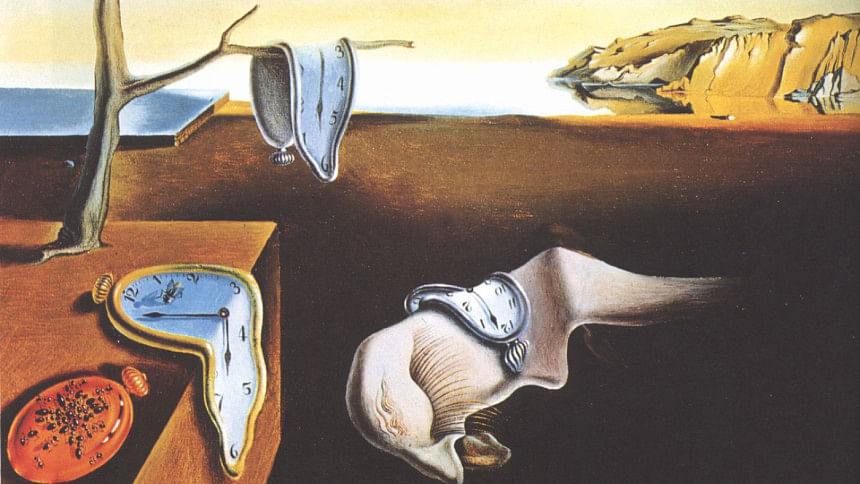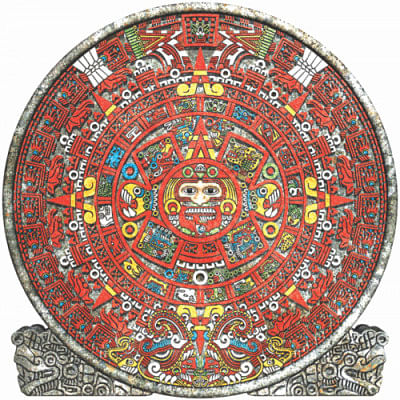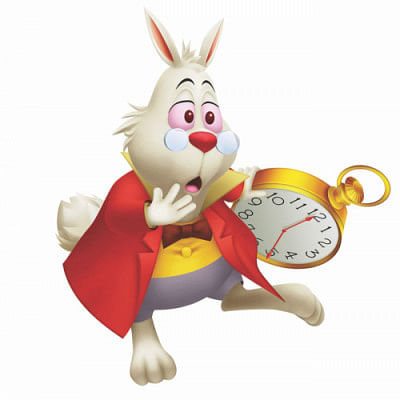TIME: How do people see it

Time was first measured by observing the moon or the sun through calendars. In 1582 AD, Pope Gregory XIII modified the Julian Calendar of Julius Caesar. The objective of the Gregorian calendar was to mark the equinoxes that had entered Christian culture from pre-Christian Europe. However, since the Gregorian conversion was for Catholics, it took time to spread in Europe and later the rest of the world. The ancient Persians have celebrated their New Year with the coming of spring. They call their festival "Nawroz" or new day. The ancient Chinese do the same.
South Asian calendars originated with the cycles of the harvest in late autumn. In Gujarat, the New Year starts in late autumn that coincides with the religious festival of Diwali. The old Bangla New Year has same roots. "Nobanno" in Agrahayan celebrates the Aman harvest. In Punjab, Hindus and Sikhs celebrate the New Year through Baisakhi. The Mughal Emperor, Akbar, started the New Year with Baisakh. His objective was to synchronise the Hijri lunar calendar with a solar calendar to make tax payment and collection convenient for record keeping. In India there is another calendar called the Vikrami calendar that was initiated by emperor Vikramaditya. This calendar didn't have leap years added to it. For this reason, Sikhs were celebrating the birthday of Guru Gobind Singh in the beginning of December and also the end of January. In 2003, the Vikrami calendar was reformed to celebrate the birthday of Guru Gobind Singh at the same time of year. This meant synchronising a lunar calendar to a solar calendar.

Multiple calendars create confusion. In Bangladesh, there is the old Bangla calendar, the Panjika; and there is the Shahidullah conversion that was synchronised with the Julian and Gregorian calendars. We follow the Shahidullah conversion for administrative purposes, while Hindu festivals and rituals follow the Panjika.
How is time seen in the minds of people? CS Lewis in "Alice in Wonderland" famously remarked through Alice, "I can't go back to yesterday. I was a different person, then." This means we see the past behind us and the future in front of us. In Madagascar, the island in the south-east of the African continent, people see time in just the opposite. To the people of Madagascar, the past lies in front of us and the future lies behind us. If you drop a bottle or glass on a table, the glass is in front of you. The event happened in the past, therefore you see it in front of you. You know it has happened. The future is coming from behind us. Since it's behind us, we can't see the future. In South Asia, the past and the future have the same word, "kaal". This generates from the concept of time.
The American poet, Clark Coolidge once said, "The business of America is business." Americans are busy talking about spending time, wasting time, budgeting time and what not. When an American says his time is up, it means, he's leaving. If you say that to a Spaniard, he will think it's time for him to die.

A German, a British, and an Italian worked for a German radio station that involved translation. The German and the British came to office at 9 am, but the Italian would come at 10 am. In spite of this, the three nationalities would submit their translations on time at 12 noon. When the German asked the Italian, why are you late, the Italian said, "Why should I come early when I know I can submit on time?"
We can go on and on about time and calendars. One thing is for certain, time did start from somewhere. And time will end somewhere. What happens in between depends on how you look at time. The same image from one side of the mirror is different from the other. May be, this is why people and societies are different.
Asrar Chowdhury teaches economic theory and game theory in the classroom. Outside he listens to music and BBC Radio; follows Test Cricket; and plays the flute. He can be reached at: [email protected]

 For all latest news, follow The Daily Star's Google News channel.
For all latest news, follow The Daily Star's Google News channel. 



Comments